Soil Electrical Resistivity Measurements
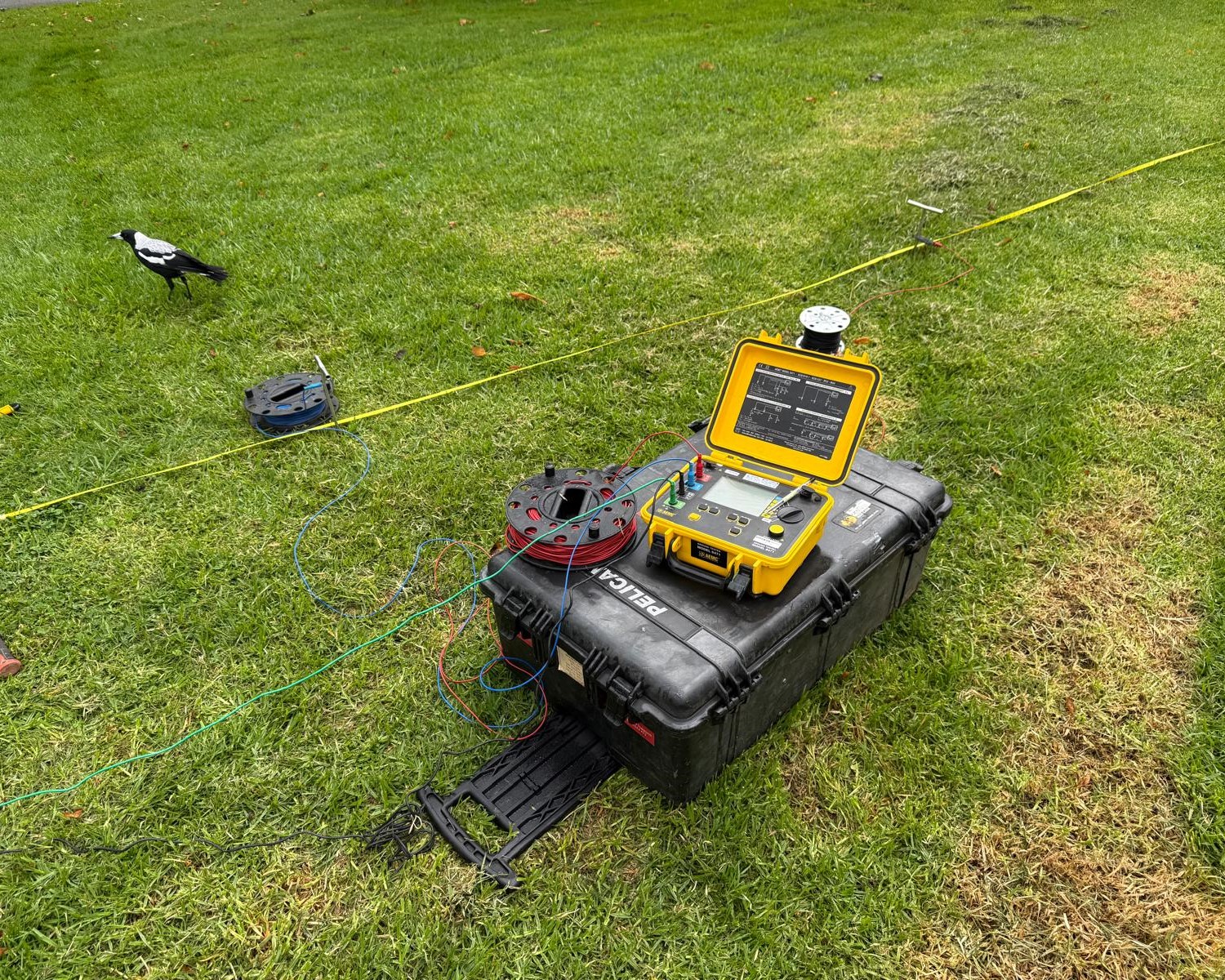
Soil Electrical Resistivity Measurements
Electrical Measurements
Soil electrical resistivity measurement is a geophysical technique used to characterize subsurface soil properties based on their electrical resistivity. This is crucial in the geotechnical engineering field for assessing soil properties for construction projects, slope stability analysis, foundation design, determining corrosion rates, assessing the performance of buried structures, etc.
The principle behind soil electrical resistivity measurements is that different soil types exhibit different levels of electrical resistivity due to variations in moisture content, mineral composition, and pore structure.
The Wenner four-electrode method (ASTM-G57-20) is the widely used method for soil electrical resistivity measurements. This method involves driving four equally spaced electrodes into the ground in a straight line and applying a known electrical current between the outer electrodes while measuring the resulting voltage drop across the inner electrodes. The spacing between electrodes determines the depth of investigation into the soil.
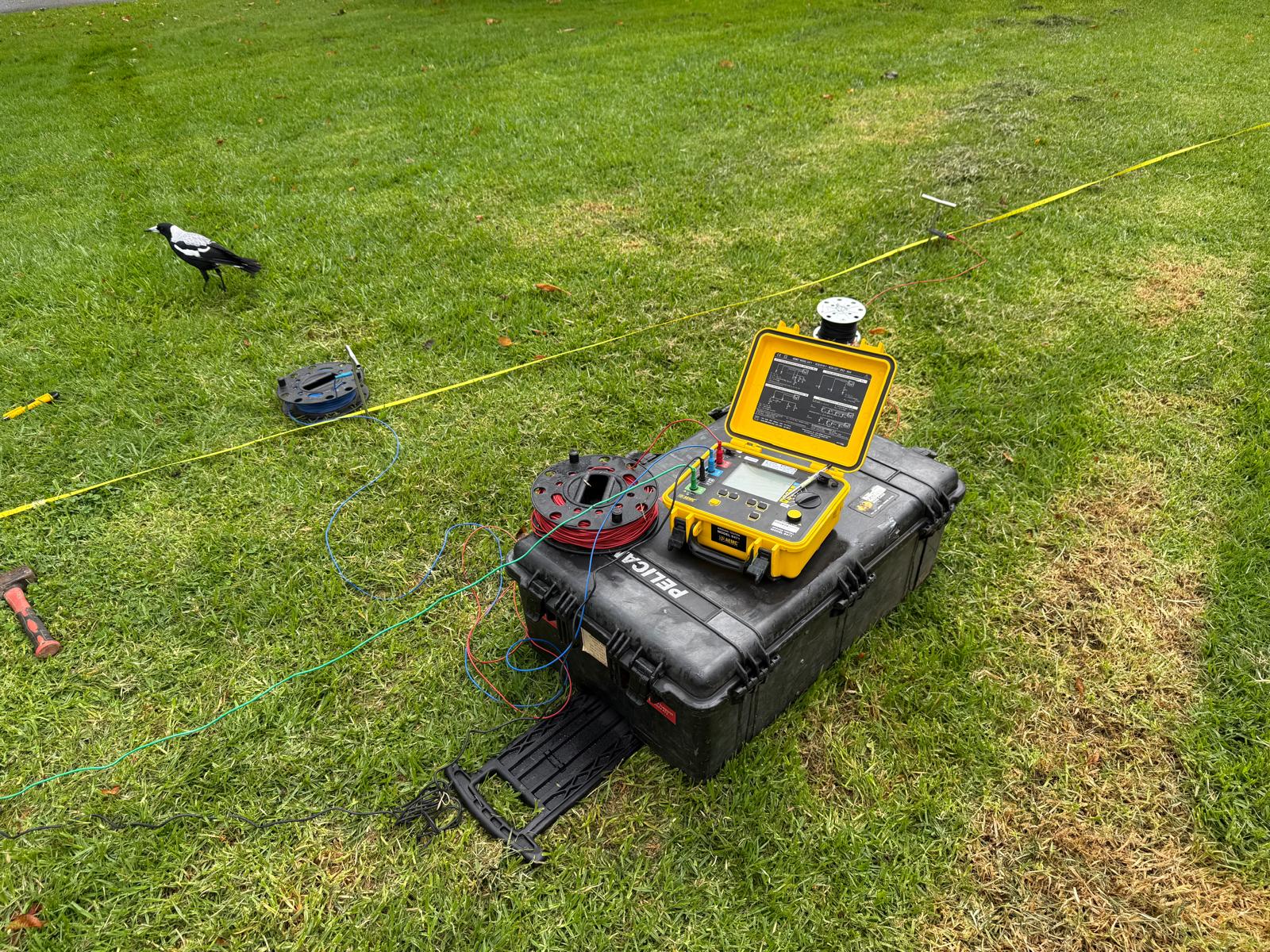
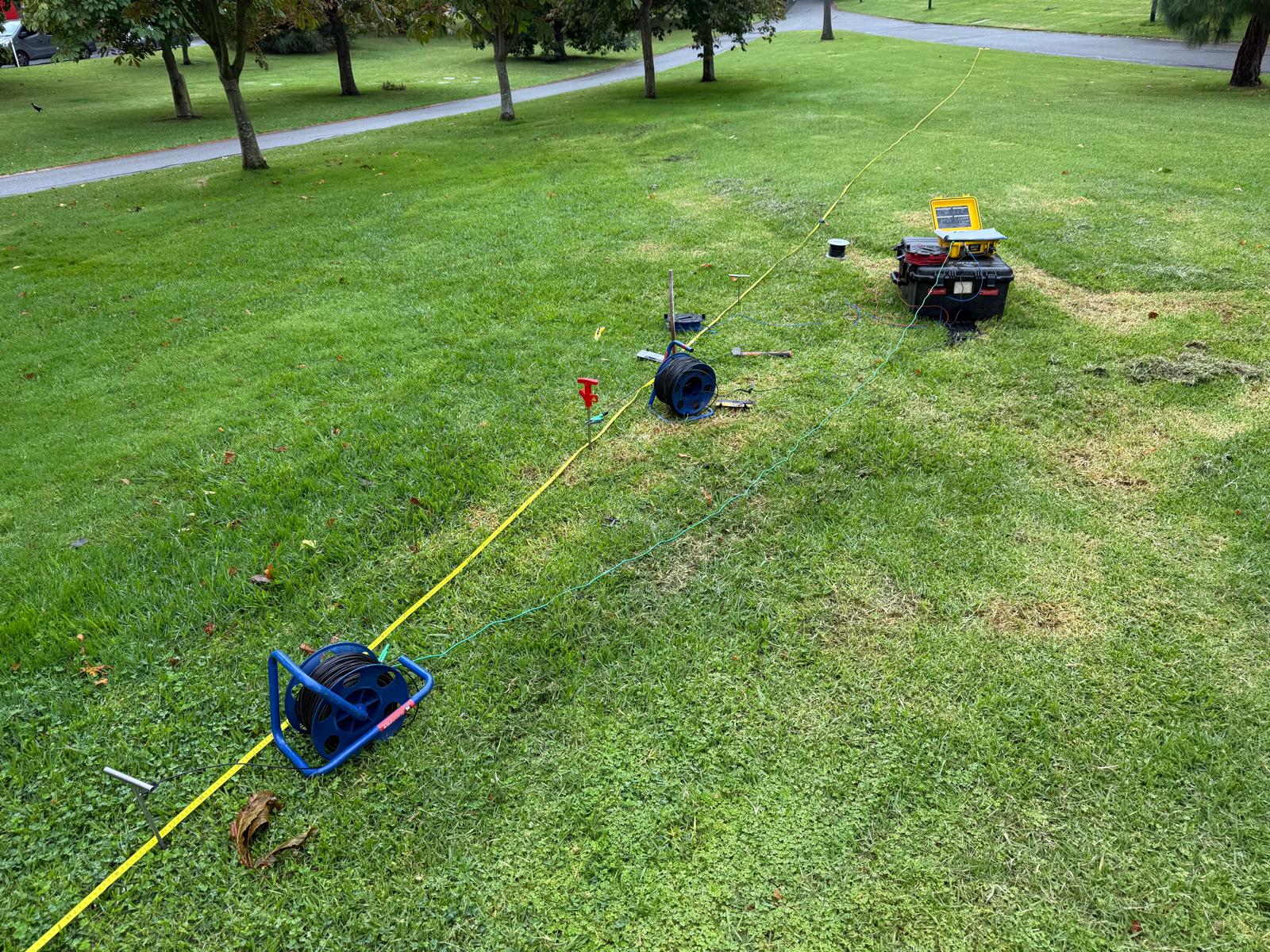
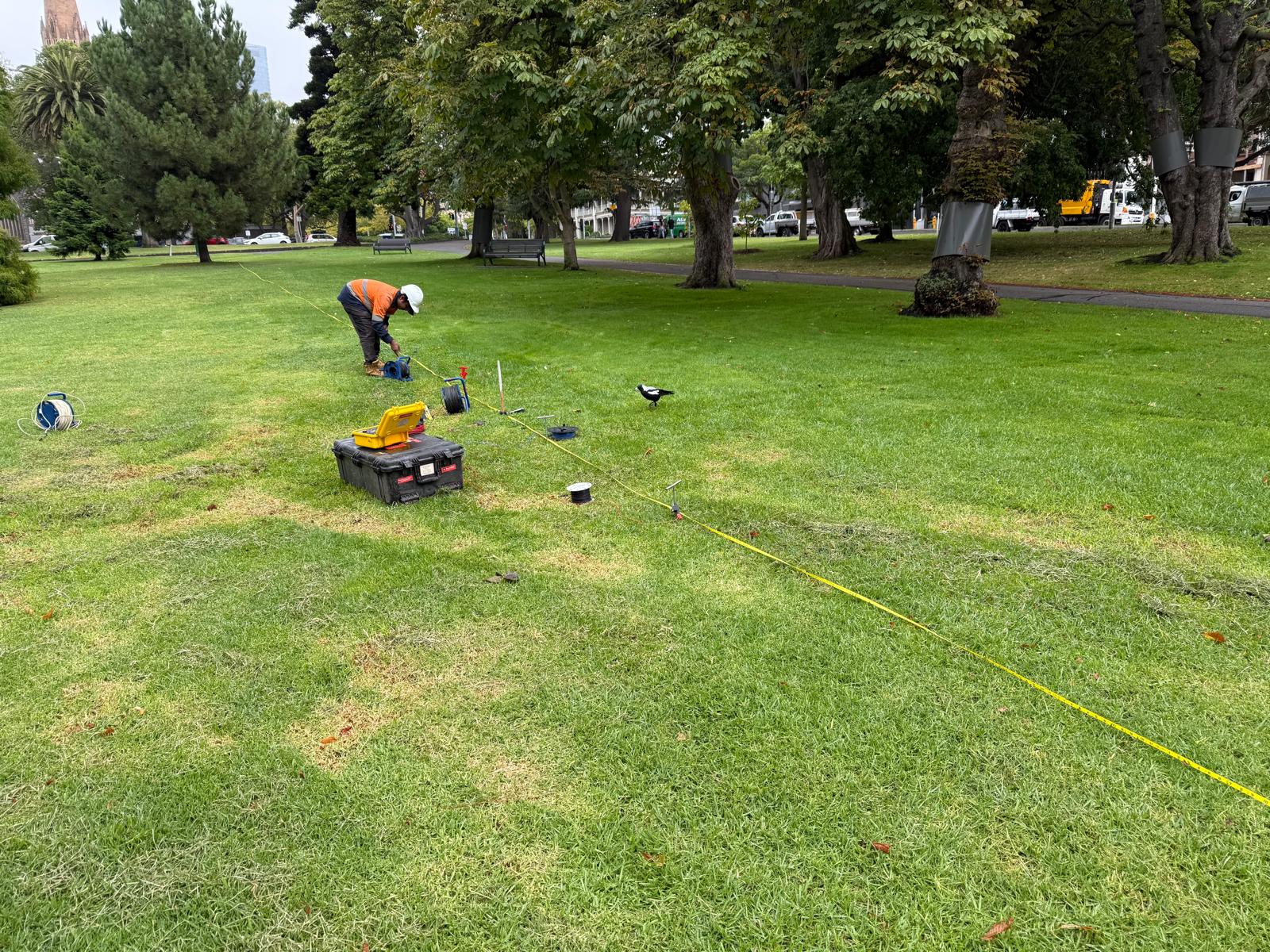
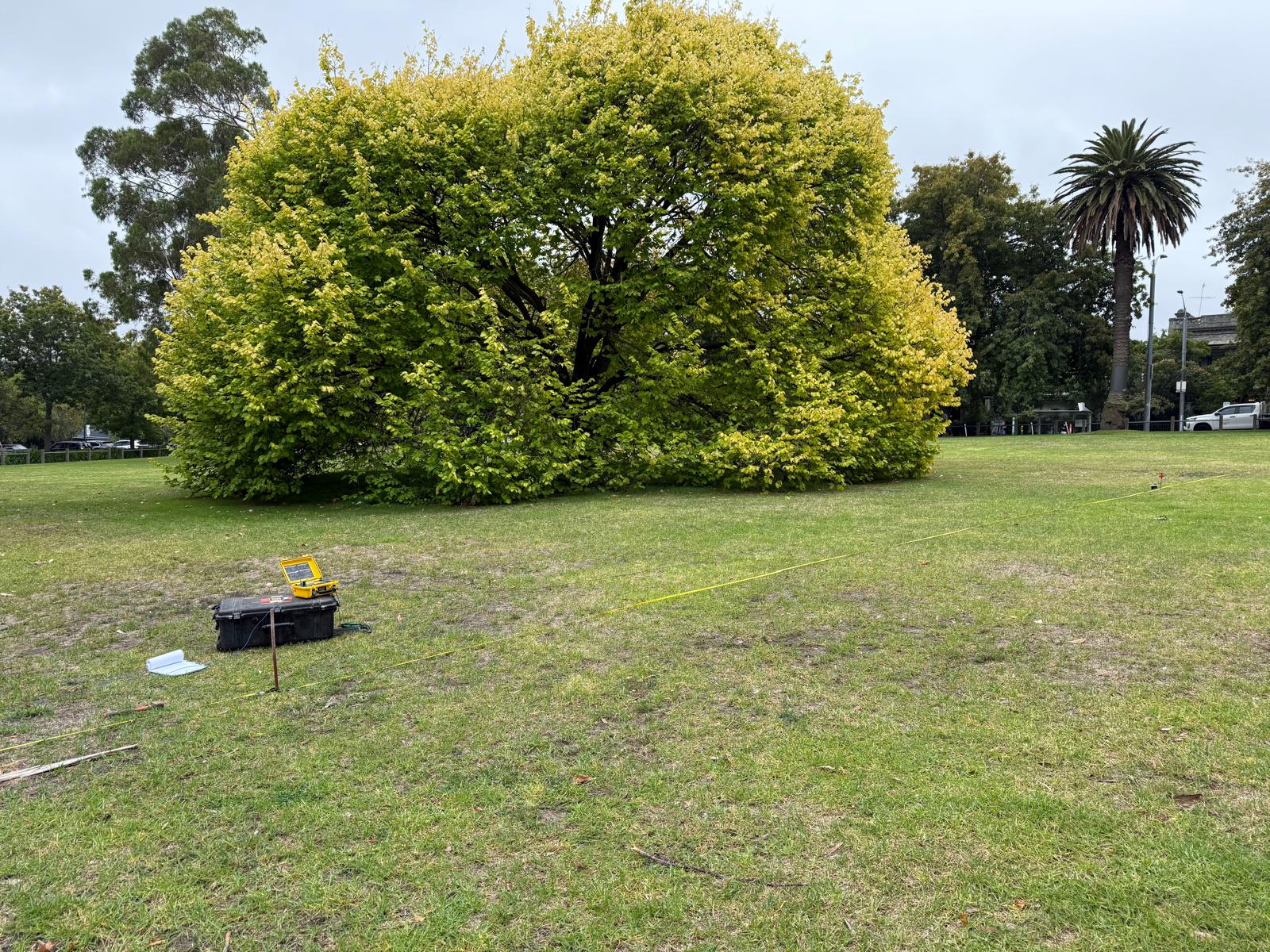
EXPERT GEOTECHNICAL ENGINEERING ADVICE FOR FREE
CONNECT WITH OUR QUALIFIED CONSULTANTS TODAY!
0403 995 593
